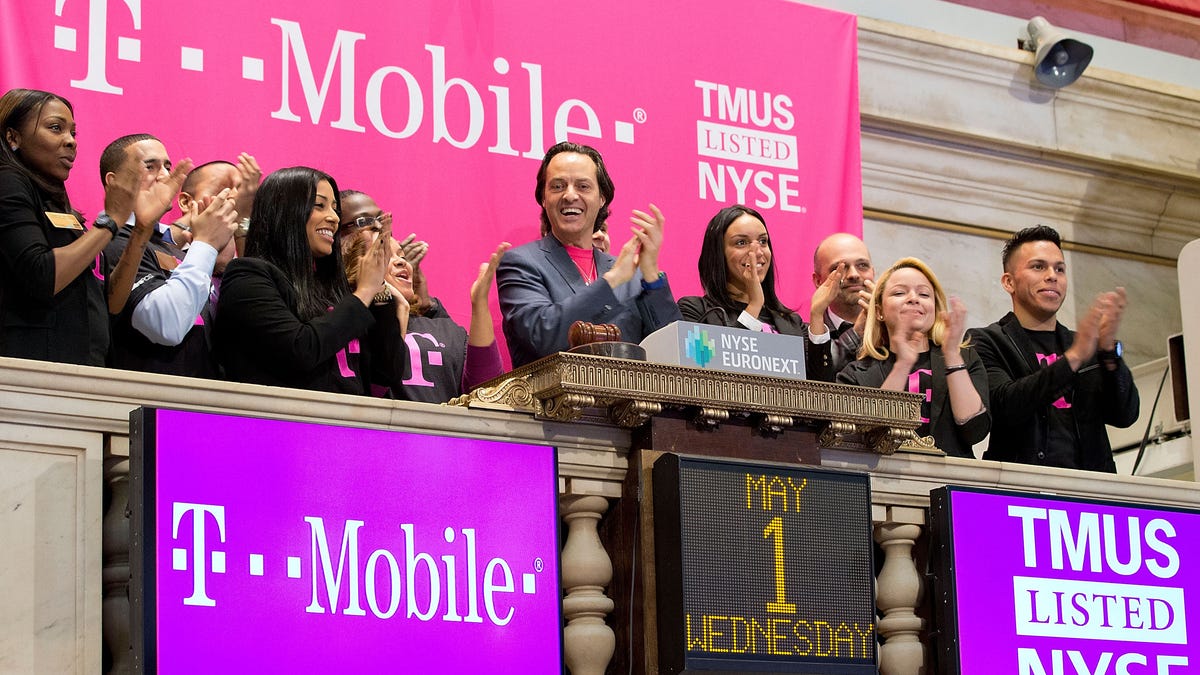T-Mobile to shut off MetroPCS network in three cities in 2014
It's ahead of schedule in migrating customers from the MetroPCS and plans to decommission the old network in Boston, Philadelphia, and Las Vegas by the end of the year.

T-Mobile said it has made good progress in shifting customers from the older MetroPCS network to T-Mobile. And the company will start shutting down the older network later this year.
T-Mobile made the announcement on a conference call with analysts and press following its fourth quarter earnings on Tuesday. The company also provided an update on its 4G LTE network build-out, which is so far ahead of schedule. The company claims it has the fastest 4G LTE network in the US.
T-Mobile completed its merger with the prepaid regional operator MetroPCS in May of last year. The company had previously planned to start shutting down the older CDMA-based network used by MetroPCS in 2015. But during the conference call on Tuesday, executives said the company will begin the transition by the end of this year.
T-Mobile Chief Financial Officer Braxton Carter noted that the preliminary programs used to move customers away from the older CDMA network of MetroPCS to T-Mobile's GSM and LTE network have been successful. More than 3.5 million or about 40 percent of MetroPCS customers have converted their devices to one that works over T-Mobile's network. About 25 percent of the spectrum that T-Mobile acquired as part of the MetroPCS acquisition has already been reused or re-farmed to be used for T-Mobile's 4G LTE deployment.
Since the migration to the T-Mobile network is happening faster than anticipated, the company said it plans to shut off service to the old MetroPCS network in three cities by the end of the year: Boston, Las Vegas, and Philadelphia.
Carter said during an interview after the conference call that there should be very little disruption to existing MetroPCS customers. Because the migration is going so well, there are anticipated to be only a small proportion of customers still using a device that operates on the older MetroPCS network in those markets, when the shutdown is complete.
Carter said that customers still left on that network, who haven't yet migrated will be supported through roaming arrangements. And T-Mobile is planning more aggressive handset swap-out promotions.
"We were able to get this done more quickly than we had expected," Carter said. "We were conservative in our original projections. But we think this will offer a lot of synergies that will result in cost savings in the future."
Though the underlying network will change, T-Mobile still expects to use the MetroPCS brand. That said, the company also plans to keep T-Mobile's homegrown prepaid brand as well. While this may confuse some consumers, Carter said that's not the intention at all. He said the company is simply trying to target different customer segments. He explained that the pricing and device availability vary depending on whether you're on a MetroPCS prepaid plan or a T-Mobile prepaid plan.
Carter said the T-Mobile prepaid options tend to be a bit pricier, but the service offers a wider array of devices. For instance, the iPhone is available for T-Mobile prepaid customers, but it's not available for MetroPCS customers.
4G LTE expansion
T-Mobile also provided an update on the company's 4G LTE network during the conference call. The company said that it will expand coverage of its 4G LTE network from about 225 million potential customers today to more than 250 million people by the end of the year. T-Mobile has also deployed LTE in 10MHz x 10MHz channels in 43 of the top 50 markets. And it's also begun deploying even higher capacity spectrum channels, including a 20MHz x 20MHz channel in Dallas. This added capacity on LTE can provide average download speeds between 20Mbps to 30Mbps, according to CEO John Legere.
Chief Technology Officer Neville Ray said the company is not only moving into new markets with 4G LTE, but it's also expanding the breadth of the network in existing markets by adding more capacity thanks to its efforts to reuse and repurpose existing wireless spectrum and also through deals to acquire new spectrum.
T-Mobile will begin seeding the market with devices that use the low-band 700MHz spectrum that T-Mobile acquired as part of a $3.3 billion deal with Verizon Wireless later this year. And the spectrum will be put into use for 4G LTE services next year.

